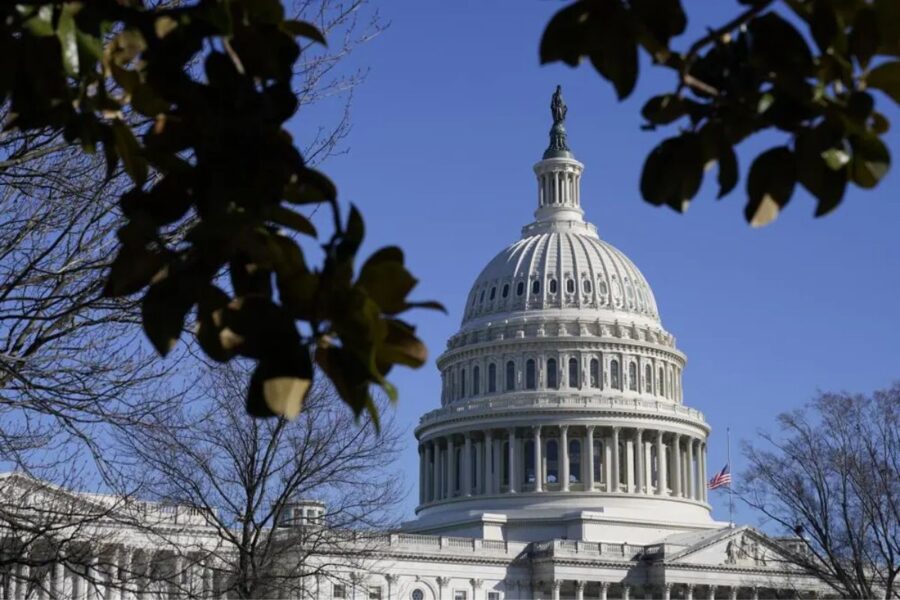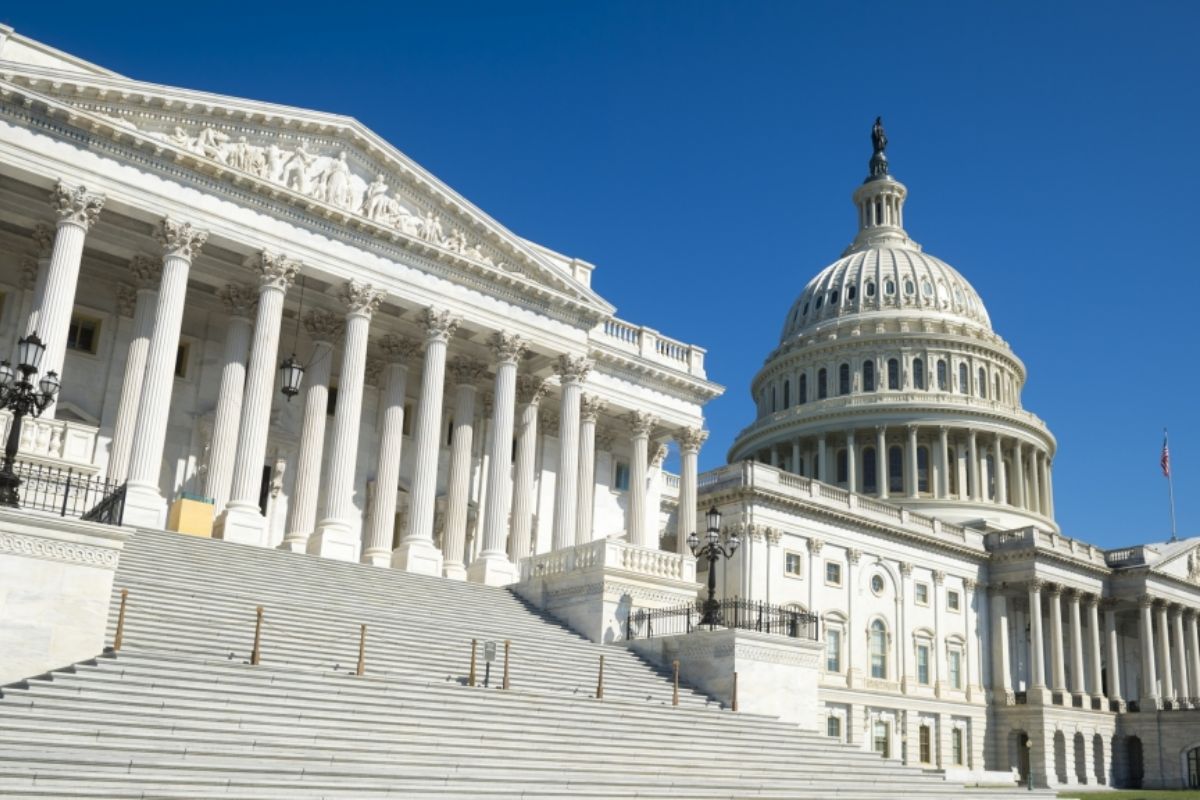Alabama Delegation Split on Government: The division within Alabama’s congressional delegation regarding the funding bill for the government. As Congress approves a third temporary measure, bipartisan voting patterns in Alabama are brought to light.
Senator Britt expresses discontent, calling for a regular appropriations process. Responses from representatives highlight both legislative passage and dissatisfaction.
The article also explores the urgency of the situation and provides insight into future prospects, offering a temporary reprieve and legislative outlook.
Key Takeaways
– Congressional approval of temporary measures highlights ongoing challenges in achieving long-term funding consensus.
– Alabama’s congressional delegation exhibits a clear partisan divide, with some representatives opposing the funding bill and others supporting it.
– Senator Britt calls for a return to regular appropriations bills to ensure transparency and responsible spending.
– Dissatisfaction among representatives highlights differing viewpoints within the Alabama delegation, particularly regarding specific priorities and border security concerns.
Congressional approval of a third temporary measure highlights the ongoing challenges faced by lawmakers in achieving long-term funding consensus. Despite the urgency to find a sustainable solution, the political maneuvering on Capitol Hill has resulted in a series of short-term funding extensions.
This latest measure, the third in just four months, reflects the persistent inability of lawmakers to reach a consensus on a long-term funding strategy for the federal government. The continuous cycle of temporary measures not only creates uncertainty and instability but also hampers the efficient functioning of government agencies. It further exacerbates the already strained relationship between political parties, making it increasingly difficult to find common ground and work towards a viable solution.
The need for a sustainable long-term funding plan remains a pressing concern, as the impact of these temporary measures continues to reverberate throughout the federal government.

ALSO READ: Alabama Congressional Incumbents in Mobile Carl and Moore Compete for GOP Support
Alabama’s Congressional Divide: Bipartisan Voting Patterns Unveiled
The divergent voting patterns among Alabama’s congressional representatives on the funding bill highlight a clear partisan divide within the state’s delegation. On one side, Senators Tuberville and Britt, along with House members Moore, Carl, and Palmer, oppose the bill. On the other side, Aderholt, Rogers, Strong, and Sewell vote in favor, showcasing an unusual cross-party alignment.
This divide reflects the broader political landscape in Alabama, where Republicans traditionally dominate. However, it is worth noting that these voting patterns do not necessarily align with party affiliation alone, as there are exceptions within each party.
This bipartisan divide underscores the complexity of the issues at hand and the diverse perspectives within Alabama’s congressional delegation. As the funding bill progresses, it will be interesting to observe how these voting patterns evolve and the impact they have on the state’s representation in Congress.
Senator Britt’s Discontent: A Call for Regular Appropriations Process
Senator Britt expresses discontent with the current federal spending system and calls for a return to regular appropriations bills. She criticizes the continuous use of continuing resolutions and highlights the Senate’s failure to conduct a regular-order appropriations process.
Senator Britt believes that perpetuating this broken federal spending system is detrimental to the country’s financial stability and accountability. She emphasizes the importance of passing individual appropriations bills as a way to ensure transparency and responsible spending.
Legislative Passage and Dissatisfaction: Responses from Representatives
Two representatives from Alabama have expressed their dissatisfaction with the legislative passage of the funding bill.
Representative Carl criticized the bill, arguing that it is a delay tactic that hinders the passage of twelve standalone appropriations bills. He believes that this approach undermines the regular appropriations process and fails to address specific priorities adequately.
On the other hand, Representative Moore took a different stance, stating that the government should either shut down the border or shut down entirely. He believes that the bill does not do enough to address the issue of border security.
These differing viewpoints highlight the split within the Alabama delegation regarding the government funding bill.
It remains to be seen how this dissatisfaction will impact future legislative discussions and actions.
Urgency and Future Prospects: Temporary Reprieve and Legislative Outlook
Several factors contribute to the urgency and future prospects of the temporary reprieve and legislative outlook for the funding bill.
The six-week window granted by the temporary reprieve is crucial for lawmakers to negotiate and finalize the twelve spending bills.
The split votes within Alabama’s congressional delegation highlight the complexity of the legislative process and the differing priorities of representatives.
The urgency arises from the need to avoid a partial government shutdown, which would have adverse effects on various government programs and services.
The future prospects of the funding bill hinge on the ability of lawmakers to find common ground and reach consensus on the spending bills within the given timeframe.
The legislative outlook depends on the willingness of representatives to compromise and work towards a bipartisan solution that addresses the needs and concerns of all stakeholders.
Conclusion Of Alabama Delegation Split on Government
The Alabama delegation in Congress is divided on the issue of government funding, as revealed by their bipartisan voting patterns.
Senator Britt has expressed discontent with the current temporary appropriations process and called for regular appropriations.
Representatives have provided mixed responses to the legislative passage, highlighting both satisfaction and dissatisfaction.
The temporary reprieve offers a short-term solution, but the future prospects for a long-term funding bill remain uncertain.
Our Reader’s Queries
What is the legislative delegation of Alabama?
In the 118th Congress, Alabama’s delegation comprises two Republican senators and seven representatives, with a majority of 6 Republicans and 1 Democrat. Representative Robert Aderholt, in office since 1997, currently serves as the dean of the Alabama delegation.
How many delegates does Alabama have?
Alabama, with two senators and seven Congressional representatives, holds nine electoral votes. The selection of electors typically involves party nominations at state conventions or through a vote by the party’s central committee.

